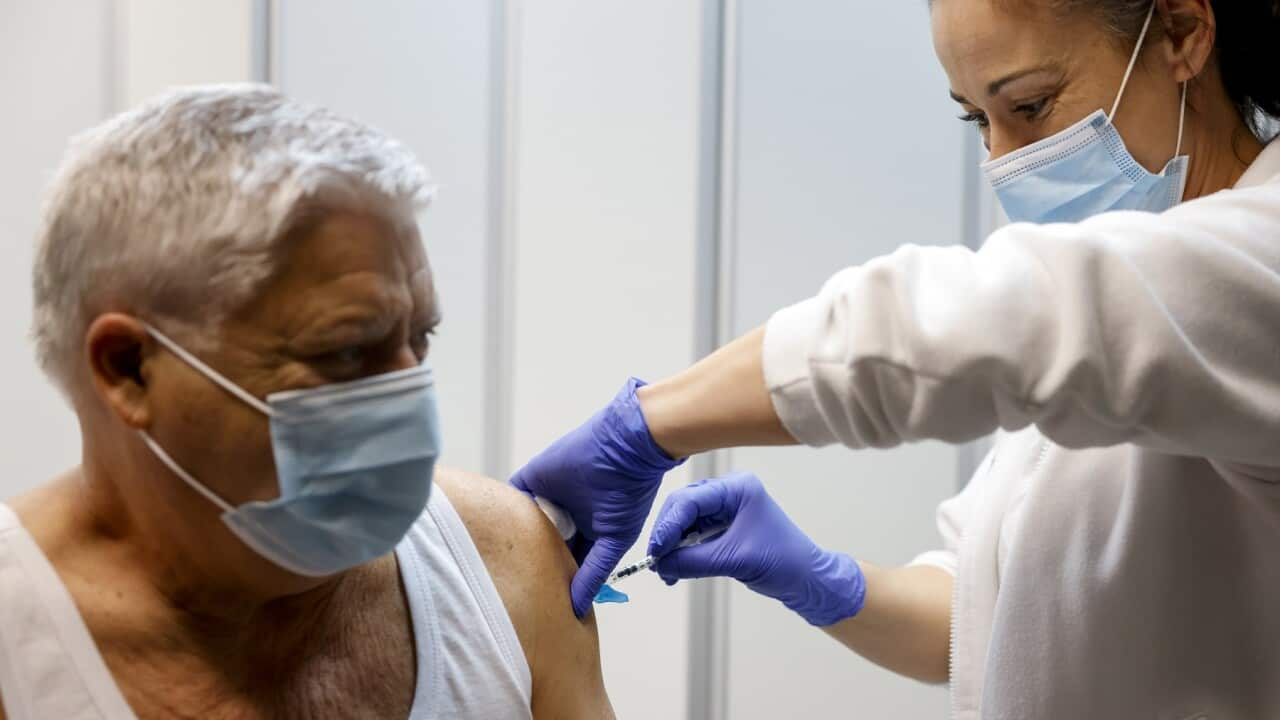TRANSCRIPT
Kate Vines is a 65-year-old recent retiree from Bowral, 90 minutes south of Sydney.
Four years ago, she was diagnosed with a disease she says she had never heard of.
"I'd been quite sick for about five days and with a really terrible hacking cough, feeling incredibly unwell. So I went to my GP and he did some swabs and it came back that I had RSV, I'd never heard of it. I had no idea what it was. And he was quite surprised that someone my age had the had the virus because he said it's normally something that young children get. It's probably the worst cough I've ever had in my life. I couldn't talk. If I'd start a sentence I wouldn't get through it before I started this really hacking cough that just wouldn't stop."
Respiratory syncytial virus, or more commonly known as R-S-V, is a common and highly contagious disease which can infect their airways and lungs.
It often causes mild to moderate illness in younger people, with symptoms including a runny nose, sore throat, cough, fever and aches.
Now, for the first time, a vaccine to combat the respiratory disease has been approved for use in Australia.
Executive Country Medical Director of G-S-K Australia, Dr Alan Paul, explains how it works.
"This is really significant. The vaccine has been a first for the TGA in approving an RSV vaccine. It's a protein based vaccine. So it takes a component of the inactivated virus, and then mixes it with what we call a booster so it allows your immune system to fully respond to the protein of the inactivated virus, and thereby present your body with a longer protection against RSV."
The Therapeutic Goods Administration has approved the vaccine, named A-R-E-X-V-Y, to be used by those aged 60 and over.
It was the first vaccine approved for use against RSV in the United States, with the drug available for sale there from May 2023.
Executive Director of the Immunisation Foundation of Australia, Catherine Hughes, says the vaccine approval is significant.
"I'm thrilled that the TGA has just approved a vaccine to protect against severe RSV infection for adults aged 60 Plus I think it's a fantastic thing. We know that RSV has a hospitalisation rate and a mortality rate that's similar to influenza. So this announcement is really a brilliant research success story. I think that will benefit many, many Australians."
Although RSV is mostly associated with young children, more than 27,000 older Australians were diagnosed with the highly infectious disease last year.
Overall, the federal government's National Notifiable Disease Surveillance System suggests there were almost 128,000 [[127,944]] confirmed cases of R-S-V in Australia in 2023.
Ms Hughes says RSV can be especially harmful for people aged 60 and over.
"Typically when we think about RSV, we often think about children, particularly little babies who are often hospitalised. But RSV can actually be very, very nasty in older adults to particularly those who are aged 60 Plus and those who have other medical conditions too, like asthma, diabetes, heart conditions, lung conditions. If you have RSV and it develops into sort of a severe infection, it can cause things like bronchitis and, and pneumonia. And it can kill people as well. And if you have other conditions already, such as asthma, or COPD, being infected with RSV can actually exacerbate those pre existing conditions you already have."
Many health professionals have suggested a lack of public knowledge about the virus is alarming.
But for those from multicultural communities, it's even worse.
Mr Paul says communication related to health risks needs to be improved in multicultural communities.
"The Australian community needs to know more about RSV. But particularly, we need to be very, very clear on ensuring that education also goes to those communities who are culturally and linguistically diverse. And so there is going to be a greater concern for those communities if that is not communicated in an effective and meaningful way to them to understand their risk. And so I would be encouraging people, for those communities and the broader community who would be eligible for this vaccine, to have that appropriate conversation about risk of RSV."
The vaccine will only be available privately to those aged 60 and over, and will incur a cost, although the exact price of the vaccine has not yet been determined.
That's something which Ms Vines thinks needs to change.
"I'm really happy that there is now a vaccine available. I certainly will be getting it as soon as I can. What I'd like to do is really encourage the pharmaceutical company and the government to work together to quickly have this vaccine listed on the national immunisation programme. We all know that, you know, the cost of living has created great problems of people having to decide how they're going to spend their money. And if it's on the NFIP, then it will be available to to older people for no cost and then they're not going to have to make the choice of where that how they spend their money, and that would encourage many more people to take up the vaccine, I'm sure."
The federal Department of Health says it's working to update the Australian Immunisation Handbook in line with the new vaccine, which is expected to be published by mid 2024.













